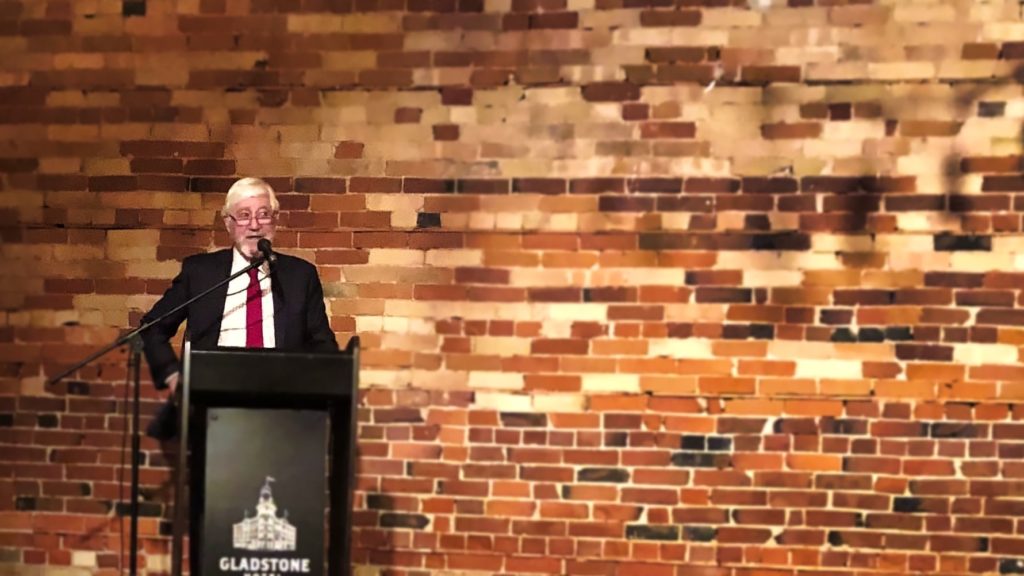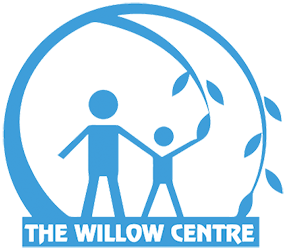On October 15th, 2019, The Willow Centre celebrated its 20th Anniversary. Below are some remarks presented by Dr Rex Collins.

Welcome.
20 years of The Willow Centre. Wow!
I think it was also around twenty years ago that I attended a meeting here in Toronto of the Association for Child Psychoanalysis. There was talk of the impact of managed care in the U.S.,of the medicalization of the treatment of children, of the cultural swing to the “quick fix”. One speaker, Jack Novick, a child analyst from Michigan, and who trained at the Anna Freud Centre, remarked that “We are like the monks in the Dark Ages, struggling to keep the knowledge alive.”
His remark has resonated with me over the years, and surfaced again as I began to prepare a few words for tonight’s event. While I felt that the general tenor of his comment spoke to me, I began to reflect a little more. What exactly is the “knowledge” he was referring to? Given that he trained at the AFC, he would have been steeped in the psychoanalytic and developmental theories of Anna and the Ur-father of psychoanalysis, Sigmund. The therapeutic techniques employed there would have formed the basis of his analytic work with children and adolescents. But analytic knowledge, particularly as it applies to children, has grown exponentially since those days, with major contributions from Melanie Klein, Donald Winnicott, Margaret Mahler, Daniel Stern, Anne Alvarez, to name but a few.
The scope of interventions aimed at helping troubled children and their families has broadened as well. These days parents are perhaps more likely to be encouraged to be involved, and, along with this shift, influenced in particular by attachment theory, there is a burgeoning interest in treating the relationship between the child and the parent (or parents), particularly in parent/infant treatment. Is all this, then, what Jack meant by “knowledge” – the various analytic theories and their related techniques?
Yes. But I think that the word for me implies at least two other important considerations.
First, what we must, in Jack’s words, “struggle to keep alive”, is the notion of the unconscious. In order to address a child’s troubled and troubling behaviours, we need to understand the particular child’s internal world from which they spring. Attempting to impose some manualized behavior approach without this understanding will not be effective and could in fact be damaging to the child. As well, we need to develop an understanding of the internal worlds of the parents, as we are now much more of how parents’ life experience and traumas affect their parenting — the intergenerational transmission of trauma to the child. It behooves us, as we approach Halloween, to continue to believe in ghosts —ghosts in the nursery.
.
Second, we have to keep in mind what the poet John Keats called “negative capability”. That is to say, we need to remain open to “not knowing”, and avoid making a “diagnosis” based on some symptom checklist, or to impose a premature foreclosure on our understanding of the child from our own theoretical (dare I say “ideological”?) perspective. Rather than “evidence based treatment” we need to be alert to “treatment based evidence.”
From this vantage point, it seems to me that the “knowledge” that Jack spoke of, relates not only to the various theories and techniques of child treatment, but as well to maintaining an open and inquiring attitude when we meet each new child and his or her parents. Lord knows, compared with twenty years ago, we are now faced with an exponential increase in the number of children diagnosed as being on the autism spectrum, as well with a growing cohort of kids emotionally damaged by the impact of parental divorce, particularly in the aptly named “high conflict” cases. Not to mention the number of children with gender identity disorder. I don’t think it’s an admission of failure to say that we don’t yet have a full enough understanding of the complexities of what these children are struggling with. So we have to maintain an open mind when these children and families approach us for help.
I think Jack would be pleased to know that, at the Willow Centre, we, in our own small way, struggle to keep the knowledge alive. True, I have not enforced a dress code at the Centre involving monastic robes and sandals, and, as yet, we don’t congregate at 6 in the morning for prayers and contemplation – although I have to say there are times when we might need it. We do meet weekly for a seminar and clinical rounds, where we challenge each other and support each other in our efforts to help the troubled kids and families we see.
Apart from our shared vision, I think what distinguishes us from other child mental health agencies and institutions in the city, is our capacity as a team, to provide concurrent treatment, for example, to a parent of a child already being seen by one of us, or to a sibling suffering as a result of the turmoil in the family related to the brother’s or sister’s disturbing behaviours. As well, in our assessments of children and adolescents we typically use what are known as projective techniques, such as the Rorschach, the Thematic Apperception Test, Children’s Apperception Test, and a host of others, more recently adding Carol George’s Doll Play technique for toddlers and young children to understand better the nature of their attachment to their caregiver.
The Willow Centre wouldn’t be what it is today without a great and committed group of people. Carol-Jane Parker, who does wonderful work with parents and infants, and who, with notable courage, tries to help children and parents in high conflict divorce situations; Robin Holloway, whose interest and expertise in assessing and treating Asperger’s children has resulted in a well received book, and who is the soulmate of John Bercow, the speaker of the British House of Commons, in his choice of ties; Marc Shiffman, who manages to tear himself away from the hockey rink to provide incredibly thoughtful and sensitive clinical work to a wide range of kids; Mirella Pugliese, without whose organizational skills, our test library would be a shambles; Melody Ashworth, whose encyclopedic knowledge of learning disabilities is a huge asset in looking at the whole child; Tamara Libfeld, whose work with families somehow ended up with her deciding to create a family of her own; and the new kids on the block, Maura Ferguson, fresh from a stint in California, and Alan Rokeach, whose capacity to get information from Dr. Google at a moment’s notice is quite impressive. Not to mention our admin persons and Den Mothers, Susan McCallum and Kathryn Salmond, whose flying fingers churn out transcripts of the AAP and my reports at a breathtaking speed.
Thanks again for coming out and for your support of the Willow Centre.
